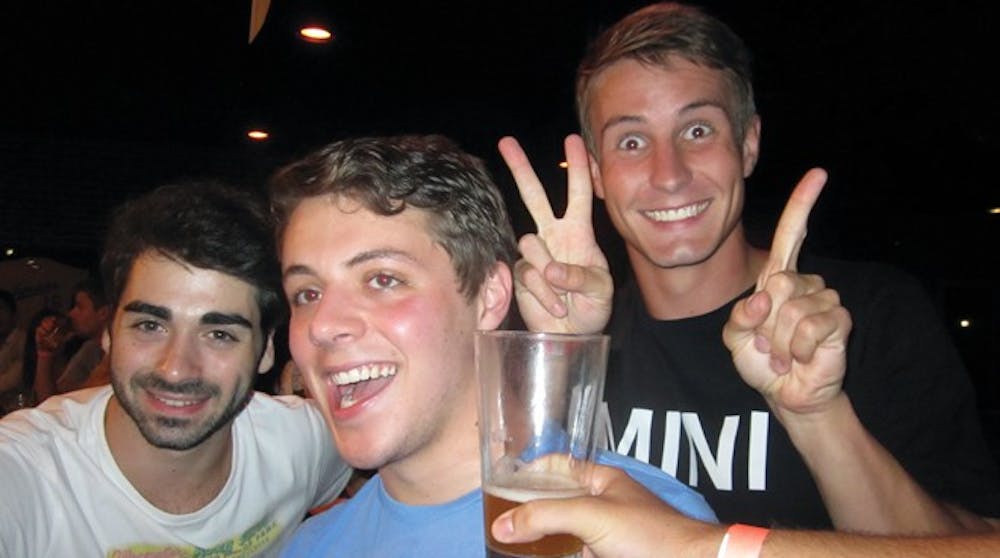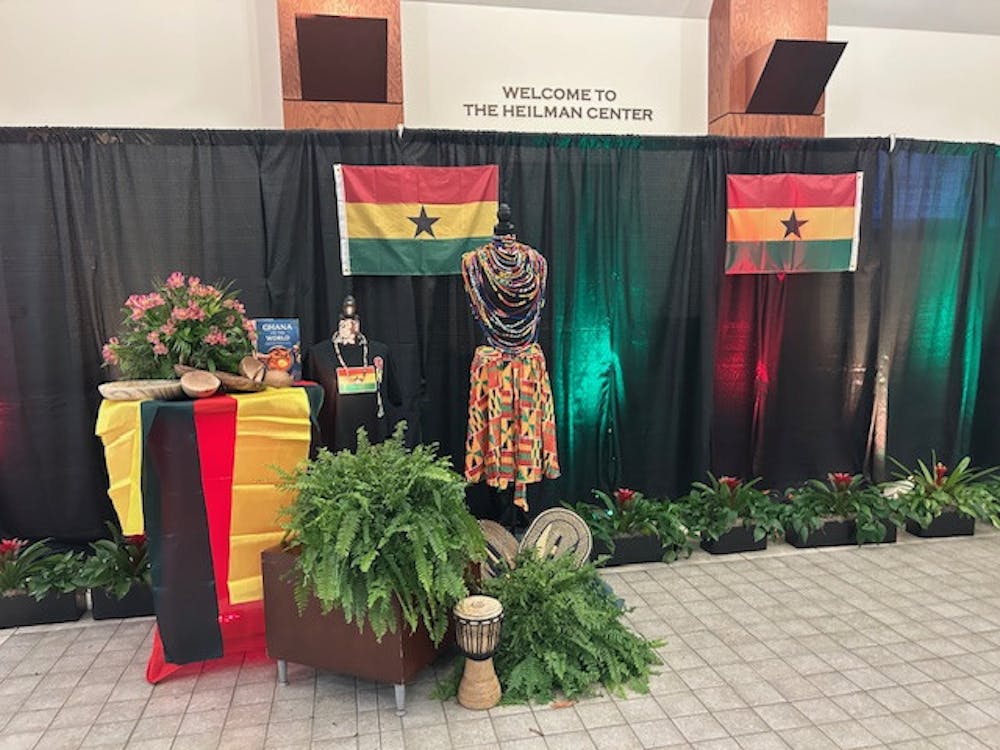Samuel Ryder celebrated his 21st birthday on Tuesday by legally drinking alcohol in the United States for the first time -- a tradition many American college students take part in.
Ryder, an exchange student at the University of Richmond, was used to drinking alcohol legally for the past three years in Australia, where the legal drinking age is 18, as in most other countries around the world. Ryder was underage in America for just a few weeks. Many of his fellow international exchange students will be forced to live with the feeling much longer.
Eva-Maude Robitaille from Canada and Megan Reynolds from England will both remain 20 years old for most of the semester (though Reynolds will remain in Richmond all year). Ryder had not seen this as a problem, he said.
"It's just as easy for a minor to get [alcohol] here as it is back home, at least on campus," he said.
Reynolds foresees difficulties in the future, she said.
"It's kind of been more of an issue than I thought," she said. "It's not that big a deal because [the social scene] is so much on campus. I think once I start getting claustrophobic, I'll find [the drinking age] annoying."
The disparity in drinking age isn't the only social aspect of Richmond international exchange students must endure.
German exchange student Markus Herrmann never had a roommate before coming to Richmond; now he has two, including Ryder.
"In Germany, everyone is a little more independent," he said.
Along with Ryder, Herrmann is also living with a student from Italy. While he is happy with his current living situation for the most part, he had originally requested an American roommate, hoping it would help him integrate into American social culture more easily, Herrmann said.
Reynolds, who is also rooming with two other international exchange students, said she knew a lot of exchange students who had wanted to room with Americans but had been placed with other internationals.
Diana Trinh, an international student adviser, said it was logistically hard to room exchange students with Americans.
Enjoy what you're reading?
Signup for our newsletter
"If they're not in their first year here, they already pick their roommates before the exchange applications actually get approved," she said of American students.
Rooming with Americans is just one expectation many exchange students have that may or may not come to fruition.
"Whenever you switch on a TV [in Australia], it's just American TV, so everyone, and I was the same, thinks they're an expert on America," Ryder said. "Obviously it is different."
Ryder has yet to see the classic "stuck-up mean girls group" from "Mean Girls."
Reynolds has found exactly what she expected from the social scene so far.
"[I expected] pretty much what I've seen -- work hard, play hard," Reynolds said. "I knew that [Americans] didn't really do like the clubbing, going into town kind of thing, just sort of house parties. In a way, it's like going back to how we partied when we were younger, and it's still quite fun, but it's kind of 14-year-old-ish."
Robitaille had no social expectations, she said.
"I thought I was coming here to study, and that's all," she said.
To help these exchange students adjust, Richmond held its international orientation program a week before first-year orientation started. The 104 exchange students were divided into 16 groups with 18 orientation advisers, Trinh said.
Senior Caitlin Selinger served her second year as an international OA this year. Her situation is unique because she is an international student from Spain, she said, so she had to deal with many of the same adjustments as her orientees did.
"Dancing is something completely different [here]," she said. "I don't think they really dance in the States, it's more just grinding, which I was completely flabbergasted by. It kind of caught me off guard."
Selinger had to explain the concepts of pregaming and the lodges to the exchange students. Many exchange students recently encountered lodges for the first time.
"I went to the lodges on Friday," Reynolds said. "That was weird. It was really fun, but quite sweaty."
Senior Derek Fleck, also an international OA this year, said many members of his group had been curious about Richmond fraternities.
"I told them as long as you have some friends in the fraternity, you can usually go [to their parties]," he said. "Fraternities, I've found, often like to invite international students to their parties because they bring something different."
As curious as exchange students are about American social culture, some still choose to interact predominantly with other international students.
"It's very typical for certain countries to group together," Selinger said. "Like, Spaniards will always group together, Italians will always be together and Danes will always be together."
The division was a language issue, Robitaille said.
"It's easier to communicate with people that are in the same situation as you," she said.
Herrmann, meanwhile, has been more comfortable interacting with Americans, he said.
"Americans know how to register a party, [they] have cars, and you don't get anywhere in the United States without a car, so that increases the comfort level by a lot," he said. "They know where the parties are and know how to behave when the police show up.
"Internationals -- they basically know as much as I do, and that's not a lot."
Contact staff writer David Weissman at david.weissman@richmond.edu
Support independent student media
You can make a tax-deductible donation by clicking the button below, which takes you to our secure PayPal account. The page is set up to receive contributions in whatever amount you designate. We look forward to using the money we raise to further our mission of providing honest and accurate information to students, faculty, staff, alumni and others in the general public.
Donate Now



